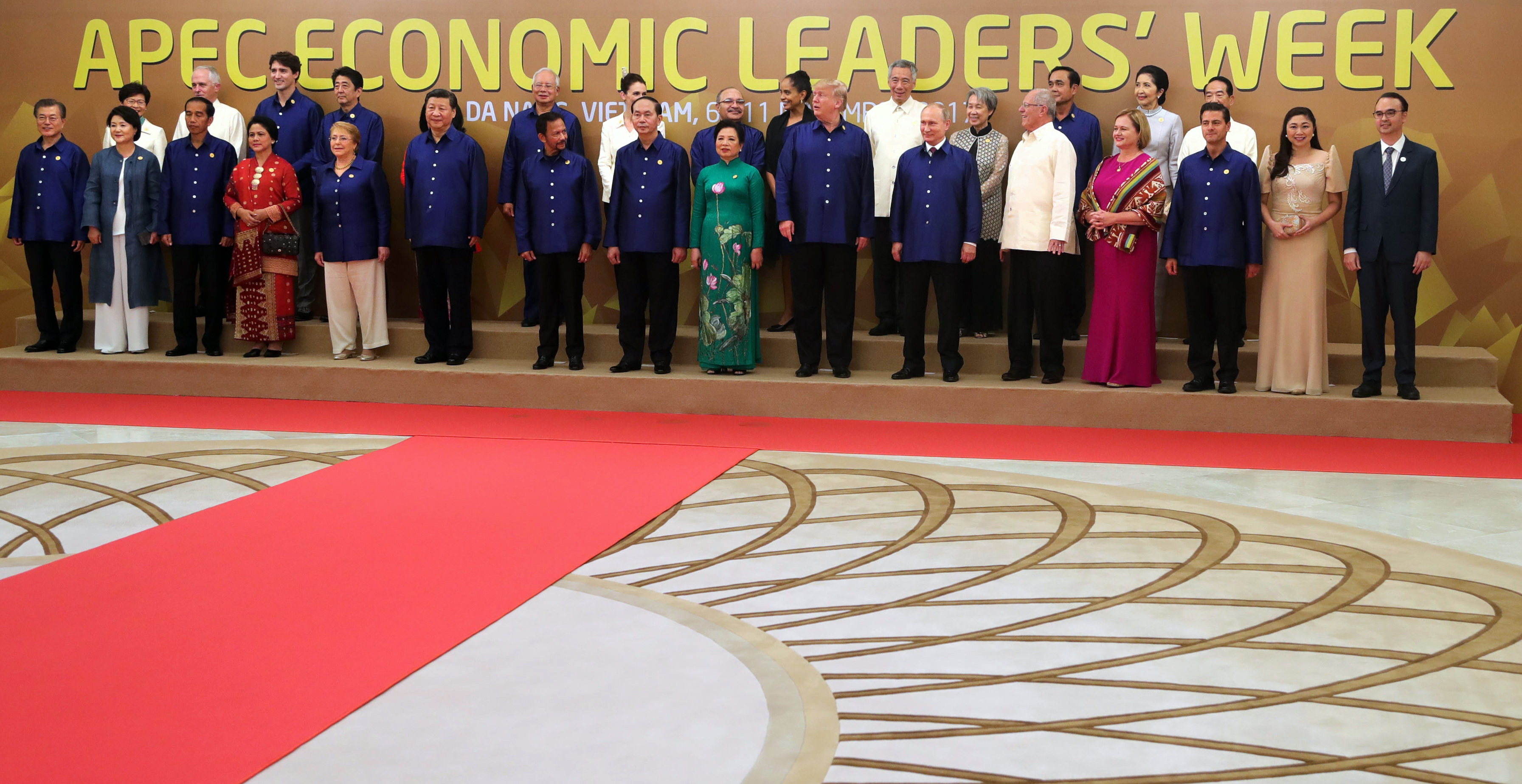'Framework' agreed on Asia-Pacific trade pact without US | ABS-CBN
ADVERTISEMENT

Welcome, Kapamilya! We use cookies to improve your browsing experience. Continuing to use this site means you agree to our use of cookies. Tell me more!
'Framework' agreed on Asia-Pacific trade pact without US
'Framework' agreed on Asia-Pacific trade pact without US
Agence France-Presse
Published Nov 11, 2017 10:41 AM PHT
|
Updated Nov 11, 2017 01:55 PM PHT
DANANG, Vietnam - Remaining members of a major Pacific trade deal abandoned by the United States have agreed to a new framework after days of stalled talks to revive the pact, Canada's trade minister said Saturday.
DANANG, Vietnam - Remaining members of a major Pacific trade deal abandoned by the United States have agreed to a new framework after days of stalled talks to revive the pact, Canada's trade minister said Saturday.
Francois-Philippe Champagne welcomed the breakthrough in a tweet as "big progress" and shared a statement saying his government had agreed to "a framework for a new Comprehensive and Progressive Trans Pacific Partnership" after holding out for strict labor and environmental clauses.
Francois-Philippe Champagne welcomed the breakthrough in a tweet as "big progress" and shared a statement saying his government had agreed to "a framework for a new Comprehensive and Progressive Trans Pacific Partnership" after holding out for strict labor and environmental clauses.
Those elements were thrown into jeopardy by America's sudden withdrawal from the deal earlier this year, which forced the remaining 11 countries involved to reconsider the merits of a pact suddenly shorn of access to the world's largest economy.
Those elements were thrown into jeopardy by America's sudden withdrawal from the deal earlier this year, which forced the remaining 11 countries involved to reconsider the merits of a pact suddenly shorn of access to the world's largest economy.
After days of talks on the sidelines of the APEC summit in Danang, the so-called TPP-11 nations made a breakthrough early Saturday, a day after Donald Trump ladled out more 'America First' rhetoric in an address to world leaders.
After days of talks on the sidelines of the APEC summit in Danang, the so-called TPP-11 nations made a breakthrough early Saturday, a day after Donald Trump ladled out more 'America First' rhetoric in an address to world leaders.
ADVERTISEMENT
The Canadian statement said "there still are a number of issues that remain outstanding for Canada" but welcomed "a new agreement" with environmental and labor protections linked to freer markets.
The Canadian statement said "there still are a number of issues that remain outstanding for Canada" but welcomed "a new agreement" with environmental and labor protections linked to freer markets.
Canada had dug in over those progressive clauses.
Canada had dug in over those progressive clauses.
But they are much less attractive to countries like Vietnam, Malaysia, Chile and Peru now that the carrot of access to the huge US market has been pulled.
But they are much less attractive to countries like Vietnam, Malaysia, Chile and Peru now that the carrot of access to the huge US market has been pulled.
Japan, the world's third largest economy, has been particularly active in pushing for a swift consensus, fearful that delays could lead to the eventual collapse of the pact after years of negotiations.
Japan, the world's third largest economy, has been particularly active in pushing for a swift consensus, fearful that delays could lead to the eventual collapse of the pact after years of negotiations.
Read More:
DANANG
Vietnam - Remaining members of a major Pacific trade deal abandoned by the United States have agreed to a new framework after days of stalled talks to revive the pact
Canada's trade minister said Saturday.
ADVERTISEMENT
ADVERTISEMENT



